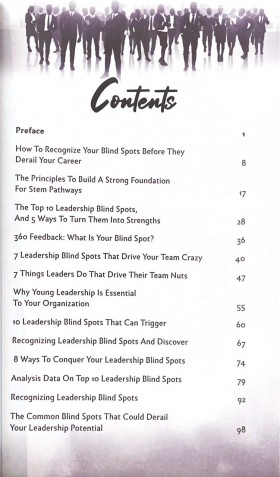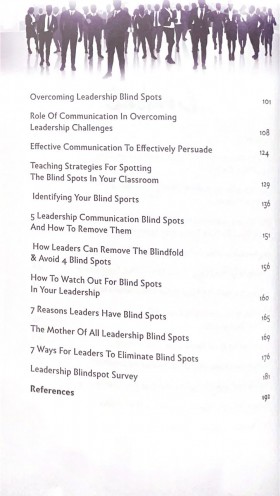Penerbit: Casamas Resources
Penulis: Mejar (B) Mohammad Qayyum bin A. Badaruddin
Muka Surat: 195
Halaman: Hitam Putih
Format: Paperback
Berat (kg): 0.200kg
Dimensi (cm): 21.5cm x 14cm x 1cm
One of the most fundamental leadership blind spots is lack of self-awareness. Self-awareness is the ability to recognize and understand your own emotions, strengths, weaknesses, values, and motives. Without self-awareness, leaders may be overconfident, defensive, insensitive, or biased.
Another common leadership blind spot is resistance to change. Change is inevitable and necessary for growth and innovation. However, some leaders may resist change because they fear losing control, facing uncertainty, or challenging the status quo. They may also cling to outdated or ineffective practices, systems, or beliefs. Resistance to change can hinder the leader's and the organization's ability to adapt and thrive in a dynamic environment.
A third common leadership blind spot is poor listening skills. Listening is a vital skill for leaders to communicate effectively, build trust, and understand the needs and expectations of their stakeholders. However, some leaders may not listen well because they are distracted, impatient, judgmental, or preoccupied with their own agenda.
A fourth common leadership blind spot is lack of delegation.
A fifth common leadership blind spot is inability to handle feedback. Feedback is the information that leaders receive from others about their performance, behavior, or impact.
That doesn't mean you should always be first in and last to leave. You have to focus on roles in which you can contribute most. But it does mean you should be willing to go the extra mile. When a leader is working less passionately fewer hours than their team, the team loses both passion for the mission and respect for the leader.
"STRONG LEADERS ENGAGE THEIR CRITICS AND MAKE THEMSELVES STRONGER. WEAK LEADERS SILENCE THEIR CRITICS AND MAKE THEMSELVES WEAKER."









